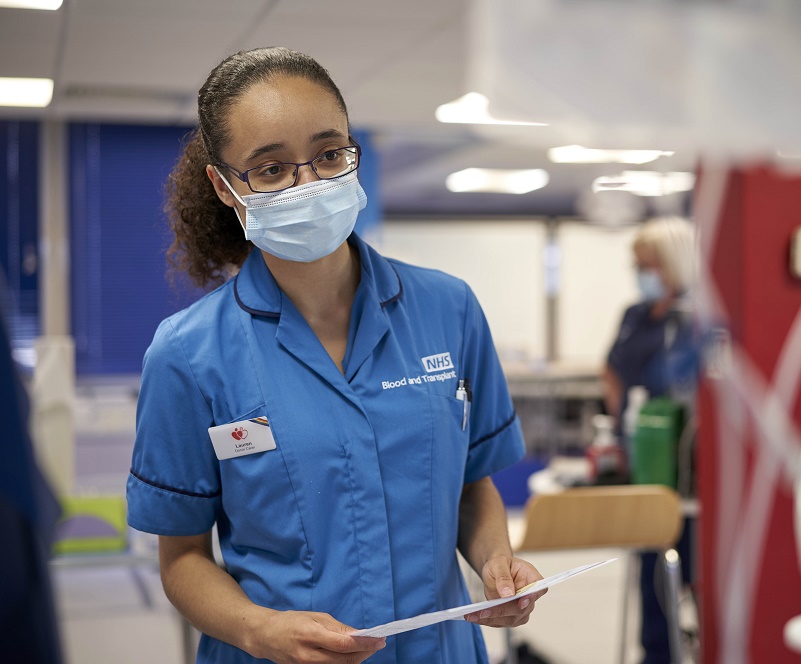Steering group concludes that donors no longer need to be asked about a partner’s sexual contact in parts of the world where HIV is very common
Recommendations from the FAIR (For the Assessment of Individualised Risk) steering group, to enable a more equitable way of assessing a donor’s risk of HIV have today been accepted in full by the Department of Health and Social Care.
 Today’s decision by the government comes as FAIR publishes its second set of recommendations on safe individualised assessments, forming part of long-term plans to continue to make blood donation in the UK more equitable and inclusive whilst maintaining safety.
Today’s decision by the government comes as FAIR publishes its second set of recommendations on safe individualised assessments, forming part of long-term plans to continue to make blood donation in the UK more equitable and inclusive whilst maintaining safety.
From the end of 2021 eligibility to donate blood, plasma and platelets will change around deferrals relating to possible exposure to a sexual infection in connection to other parts of the world.
Currently, prospective donors are asked if they have ever had sex with a partner who may ever have been sexually active in an area where HIV is endemic, which includes most of sub-Saharan Africa. If they have, the donor will be deferred for 3 months after the last sexual contact with that partner.
FAIR has concluded that there is no longer a need for this question because the recent introduction of the new Donation Safety Check questionnaire means all donors are now assessed for risk of a sexual infection based on their individual sexual behaviours.
This question will no longer be asked from the end of 2021.
Alongside existing deferrals relating to general health and travel anyone at an increased risk of sexual infection would now be deferred regardless and therefore the question is no longer needed.
Greater awareness around HIV – and more recently the emphasis with donors to consider past infections and current sexual behaviours before coming to donate – also means donors are likely to self-defer if they feel they are at higher risk.
The UK blood services need to recruit more Black donors to meet the changing clinical needs of the future, and there is concern that this question could be putting people of Black African background off donating. NHSBT is working hard to listen to the needs of Black communities and make donation as accessible as possible for them.
Su Brailsford, Interim Associate Medical Director at NHS Blood and Transplant and Chair of FAIR said: “We are proud to have one of the safest blood supplies in the world and I’m pleased that the latest evidence-based advice on donor eligibility has been accepted in full, creating an even more equitable, better experience for all donors.
“Coming into effect by the end of 2021, we hope this change will also remove the unease long-felt by some donors about this – in particular the Black African community whose needs we are working hard to listen to and better address, those of African heritage, and their partners, who are all disproportionately affected.”
“All blood, plasma and platelet donors are now routinely encouraged to consider past infection and current sexual behaviour before coming to donate and if now is the right time to make an appointment. Please check our website for the latest guidance on eligibility before you attend to avoid disappointment.”
These changes will be kept under review to ensure the continued safety of blood. Feedback from donors, patients and representatives will be a key consideration.
Become a blood donor. Register today and book and appointment by calling 0300 123 23 23, downloading the GiveBloodNHS app, or register online.
You can also donate plasma for antibody medicines that are used to save the lives of people with rare immune diseases - potential plasma donors should call 0300 123 23 23.
Find out more about the work of the FAIR steering group and read the full report.

